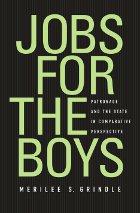
In 1976, at age twenty-five, Stephen Kinzer arrived in Nicaragua as a freelance journalist—and became a witness to history. He returned many times during the years that followed, becoming Latin America correspondent for the Boston Globe in 1981 and joining the foreign staff of the New York Times in 1983. That year he opened the New York Times Managua bureau, making that newspaper the first daily in America to maintain a full-time office in Nicaragua.
Widely considered the best-connected journalist in Central America, Kinzer personally met and interviewed people at every level of the Somoza, Sandinistas and contra hierarchies, as well as dissidents, heads of state, and countless ordinary citizens throughout the region.
Blood of Brothers is Kinzer’s dramatic story of the centuries-old power struggle that burst into the headlines in 1979 with the overthrow of the Somoza dictatorship. It is a vibrant portrait of the Nicaraguan people and their volcanic land, a cultural history rich in poetry and bloodshed, baseball and insurrection.

The creation and preservation of capable states is a lengthy, laborious, and multifaceted process, fraught with opportunities for failure and misspent resources. It requires time, commitment, innovative ideas, consensus building, new rules of the game, efficient design and resource allocation in technical assistance, and considerable good luck. By the mid-1990s, the imperative to improve government performance had been added to the development agenda precisely because of greater awareness that neither markets nor democracies could function well--or perhaps function at all--unless governments' efficiency, effectiveness, and responsiveness are improved.
This publication seeks to help understand how governments can be encouraged to perform better and how state capabilities can be developed in ways that allow markets and democracies to flourish. The contributors draw comparative lessons from specific efforts designed to enhance human resource development in the public sector, to strengthen organizations that contribute to the public purpose of government, and to reform the institutions that set the rules for economic and political interaction.
Getting Good Government will be of interest not only to public officials and public management and policy analysts, but also to political scientists and international development specialists.

As the world transitions from an industrial society to an information society, agriculture has undergone a dramatic transformation. Food production in the twentieth century was transformed by three revolutions: first mechanical, then genetic, and finally chemical. Now, in the twenty-first century, agriculture is going through at least two more revolutions: an information technology revolution leading to precision farming, and a biotechnology revolution leading to genetically engineered crops.
Organized by Harvard University’s David Rockefeller Center for Latin American Studies with the collaboration of the Scientific Committee for Problems of the Environment, this interdisciplinary volume examines the impact of a variety of new technological, social, and economic trends on the rural environment.

Patronage systems in the public service are universally reviled as undemocratic and corrupt. Yet patronage was the prevailing method of staffing government for centuries, and in some countries it still is. In Jobs for the Boys, Merilee Grindle considers why patronage has been so ubiquitous in history and explores the political processes through which it is replaced by merit-based civil service systems. Such reforms are consistently resisted, she finds, because patronage systems, though capricious, offer political executives flexibility to achieve a wide variety of objectives.
Grindle looks at the histories of public sector reform in six developed countries and compares them with contemporary struggles for reform in four Latin American countries. A historical, case-based approach allows her to take into account contextual differences between countries as well as to identify cycles that govern reform across the board. As a rule, she finds, transition to merit-based systems involves years and sometimes decades of conflict and compromise with supporters of patronage, as new systems of public service are politically constructed. Becoming aware of the limitations of public sector reform, Grindle hopes, will temper expectations for institutional change now being undertaken.

In 1952 Bolivia was transformed by revolution. With the army destroyed from only a few days of fighting, workers and peasants took up arms to claim the country as their own. Overnight, the electorate expanded five-fold. Industries were turned over to worker organizations to manage, and land was distributed to peasant communities. Education became universal and free for the first time in the country's history.
This volume, the result of a conference organized by the David Rockefeller Center for Latin American Studies of Harvard University and the Institute for Latin American Studies at the University of London, presents new interpretations of the causes of the events of 1952 and compares them to the great social transformations that occurred in France, Mexico, Russia, China, and Cuba. It also considers the consequences of the revolution by examining the political, social, and economic development of the country, as well as adding important insights to the analysis of revolution and the understanding of this fascinating Andean country.

READERS
Browse our collection.
PUBLISHERS
See BiblioVault's publisher services.
STUDENT SERVICES
Files for college accessibility offices.
UChicago Accessibility Resources
home | accessibility | search | about | contact us
BiblioVault ® 2001 - 2024
The University of Chicago Press









